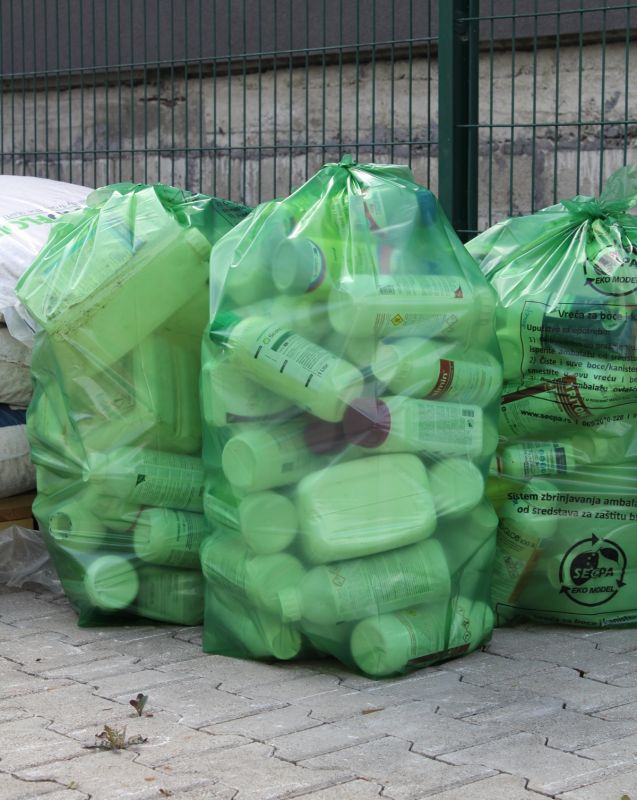In 2024, the Ana and Vlade Divac Foundation continued implementing the pesticide packaging waste management project, initially launched as a pilot initiative in the municipality of Požega in 2023, with the voluntary participation of the municipality of Arilje. Based on the excellent results and high level of interest, the project was expanded this year and implemented in five municipalities of southwestern Serbia - Požega, Arilje, Lučani, Nova Varoš, and Užice.
Educational workshops were organized in all five municipalities, where experts from the Agricultural Advisory and Professional Service in Užice trained several hundred farmers on the proper use and disposal of pesticide packaging.
Participants were introduced to relevant legislation, triple-rinsing procedures, safe storage methods, and the importance of environmental protection, as well as their obligations in this area.
Following the workshops, two pesticide packaging collection campaigns were carried out, in June and October 2024, at over 30 locations. More than 150 local farmers participated in the campaigns, collecting over 500 kilograms of packaging waste.
This broader initiative is based on the findings of a study on the (mis)use of pesticides in Serbia, conducted by the Ana and Vlade Divac Foundation in 2021 on a sample of 1,030 farmers across 116 municipalities. The research revealed alarming patterns - as many as 50% of respondents dispose of pesticide packaging in municipal waste, while only 9.3% store it properly until it is collected. These findings contributed to policy recommendations included in the Ministry of Finance’s Economic Reform Program for the 2023-2025 period and were presented at international conferences.
Through this project, the Foundation contributes to the long-term goal of raising awareness about the importance of proper pesticide packaging waste management and the protection of human health and the environment in rural communities across Serbia. The project is a strong example of how local knowledge, partnership-based approaches, and community engagement can lead to sustainable solutions in the field of environmental protection.
